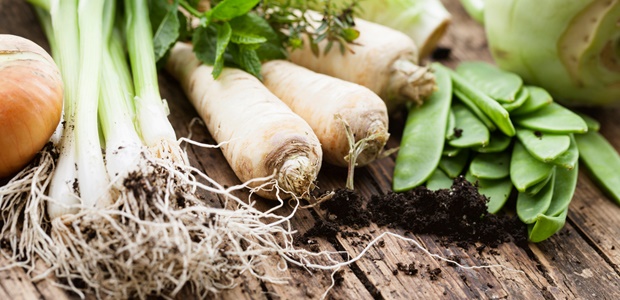Organic is a term used to describe products that are grown naturally. Fewer chemicals are used to farm organic produce, resulting in less pesticides in your food.
Farrah Schwab of Greenpop says ‘we need to take food into our own hands and make sure that what we eat, is safe.’ Dr. Chensheng (Alex) Lu from the Harvard T.H. Chan School of Public Health confirms. “Research shows children can dramatically reduce the levels of pesticides in their bodies by eating organic fruits and vegetables.” Not only is organic food safer, it has other advantages over ‘conventional’ food. It tastes better and has more nutrients.
The Journal of Alternative and Complementary Medicine has found that on average, organically grown foods have 27% more vitamin C, 21 % more iron, and 29.3% more magnesium than conventional produce.
Organic or free-range meat and dairy has no added growth hormones and antibiotics. In fact, the US Environmental Protection Agency (EPA) states that the majority of chemicals in our food are from meat, chicken, fish, eggs and dairy. All these foods are all high on the food chain. In addition, dairy products may contain up to 70% of the female hormone, estrogen. The hormone rBST is often added to a cow’s diet to increase milk production. So if you are concerned about added hormones, rather choose a ‘rBST-free’ product.
Buying organic with a limited budget can be tricky. What products to choose? What product will make the most difference?
If an all-organic diet is not an option, you can still have a healthy diet by choosing fresh produce according to the USA’s Environmental Working Group Shopper’s Guide”, added Dr Lu.
The EWG annually issues a consumer guide; the EWG’s Shopper’s Guide to Pesticides in Produce™. This list ranks almost 50 fruit and vegetables in terms of pesticide contamination and in 2016 there is a new No 1 on its Dirty Dozen™ list – strawberries!
The production of these beautiful berries utilises many pesticides; even known carcinogens are used to fumigate the soil. In addition, pesticides are difficult to wash off due to the bumpy surface of a strawberry. Celery, similar to strawberries, is porous and the ridges in the stalk retain many of the pesticides with which it is produced.
The other members of the Dirty Dozen™ are apples, nectarines, peaches, celery, grapes, cherries, spinach, tomatoes, sweet peppers, cherry tomatoes and cucumbers, while the innocent-looking potato has more pesticides by weight than any other produce. Scary!
EWG recommends buying organic leafy greens (spinach and kale) and chillies. If you can’t get hold of organic, eat them cooked as pesticides can be broken down by heat.
On the positive side, EWG’s Clean Fifteen™ are the fruit and veg least likely to hold pesticide residues. The cleanest of them all are avocados. Also on the ‘clean’ list are sweet corn, pineapples, cabbage, onions, asparagus, mangoes, papayas, kiwis, eggplant, melons, grapefruit and cauliflower.
Choose produce that is in season, urges Les Hutton founder of Organic Farms and Wholefood. His company trains and supports upcoming organic farmers in South Africa. ‘Eating produce in season and not, say, apples that have been stored from the previous packing season, is better for your body.’
In summary, it seems that it’s best to buy organic strawberries, spinach and potatoes and choose free-range meat and milk. Still, a diet of conventional, ‘normal’ fresh fruit, vegetables and good quality animal products are much better than processed foods, baked goods and sugar.

